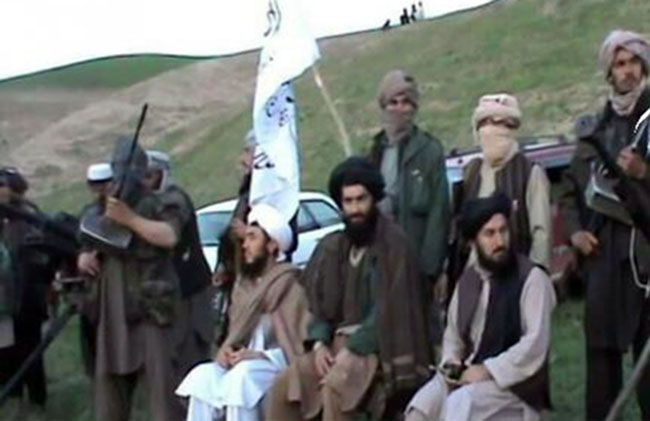With the appointment of Mawlavi Haibatullah Akhundzada, who is known for his radical decrees, as Mansour’s successor the security situation has been deteriorated in Afghanistan. The deadly attack on the Afghan military vehicles on June 30, as they were heading from Wardak to Kabul left tens of soldiers dead and wounded behind. The attack is the latest major assault by the group and came just nine days after 14 Nepali security guards were killed in a suicide bomb attack on their bus, in Kabul.
This comes as it was reported earlier that the U.S. forces in Afghanistan have launched new air strikes against Taliban targets in recent days under a new plan approved in June by the U.S. President Barack Obama. The expanded U.S. combat role comes at a time that the Taliban insurgency has bounced back less than two years after the U.S. and the coalition forces pulled their troops out of Afghanistan, transitioning the overall security responsibility of the country to conventional forces who, according to military experts, were still in need of a strong air force and military equipment.
Reportedly, more than 50 districts in the country are facing serious security threats; nine of them are currently out of government’s control. Afghan soldiers and civilians are left at the mercy of unmitigated militancy and the Taliban fighters have, seemingly, reinforced their offensives following the death of Mullah Akthar Mansour, who was killed in U.S. drone strike in the Dalbandin area of Balochistan on May 21. So, they will never sit around the peace table and have taken the oath of revenge for their leader’s death. Moreover, these attacks are also a backlash against the U.S. and Afghan soldiers’ heavy strikes.
Calling Mansour an “obstacle” before peace talks, the U.S. soldiers targeted him with the intention of facilitating talks between Afghan government and the Taliban elements. To U.S. and Afghans’ unmitigated chagrin, his successor has come out a greater obstacle for being more radical than Mansour – which means “out of frying pan into the fire.” Now, there is not a faintest doubt about Haibatullah’s profound radicalism and he deserves to be the next target of the U.S. drone strike.
This is a true fact that all the doors to peace talks have been closed. The decade-long struggles of Afghan government was proved abortive and the establishment of Quadrilateral Coordination Group (QCG) which comprises of Pakistan, Afghanistan, the U.S. and China for bringing the Taliban to negotiating table is on the verge of disintegration since the trust has been faded away among the members after Mansour’s death. As a result, Afghan forces are in favor of military deal against the Taliban – which is believed to be a wise decision after repeated failures for talks – however, Regional countries still push for talks, although, they failed to fulfill their promises in getting the Taliban to hold talk. As a result, Pakistan warned that those seeking a renewed recourse to military-oriented solution need to think through its consequences. Speaking in the quarterly debate on Afghanistan at the UN Security Council (UNSC) in New York Dr. Maleeha Lodhi, Pakistan’s Ambassador to United Nations, asked “Is it (US) ready to invest in war rather than peace in Afghanistan?” She condemned the May 21 US drone strike in Naushki district of Balochistan which killed Mullah Akhtar Mansoor, describing it as an “unacceptable and blatant violation of Pakistan’s sovereignty and of the UN charter and international law”. This strike, she said, dealt “a blow to the Afghan peace process” and added to the intensity and complexity of the Afghan conflict. Referring to Secretary General Ban Ki-moon’s report on Afghanistan, she said it reinforced the firm international consensus that, “Only by a negotiated political agreement will Afghans achieve sustainable peace”.
The question, for those who deem peace talks a right option, is that why the talks have never come to fruition despite Afghanistan’s tireless struggles? The Taliban have constantly opened new seasons for their terrorist acts, despite persistent calls for negotiation, such as “spring offensive” last year and “Omari Operation” this year – which have taken heavy toll of Afghan civilians and soldiers. The militants never hesitate to spill the blood of non-combatants, including women and children. So, do you think that a unilateral persistent for talks ever come to fruition while the next side speaks with the barrel of gun?
Indeed, no country likes violence and bloodshed but the unmitigated militancy has imposed the war on Afghanistan. The Taliban have always exploited the generosity and good will of Afghan government. For instance, when they were released from prisons, during Hamid Karzai’s administration, they rejoined battlefield and staged heavier attacks against the government – which led to larger casualties.
Therefore, it is believed that “a tooth for a tooth and an eye for an eye” will be the only effective option, if not the best, regarding the Taliban militants. The government should revenge streams of blood being spilt every day which fill our nation with outpouring of grief. Hence, the government will have to disband the High Peace Council (HPC) – which was established in 2010 to hold talks with the Taliban – and enhance tactical and military intelligence to bring the warring factions to their knees.
Home » Opinion » Taliban Impose War on Afghanistan
Taliban Impose War on Afghanistan
| Hujjatullah Zia

